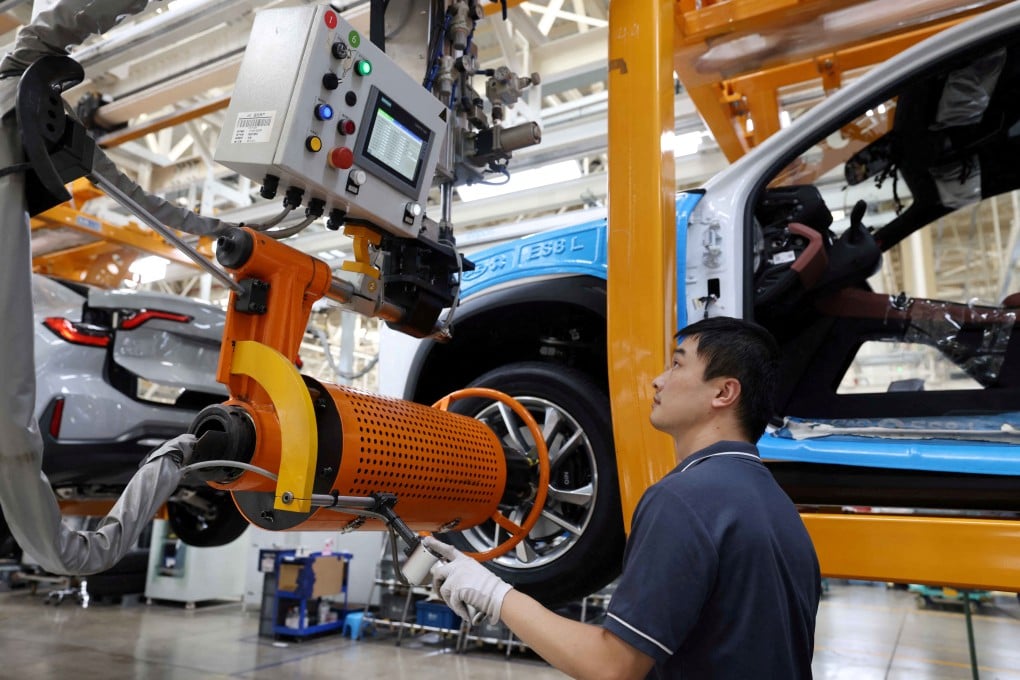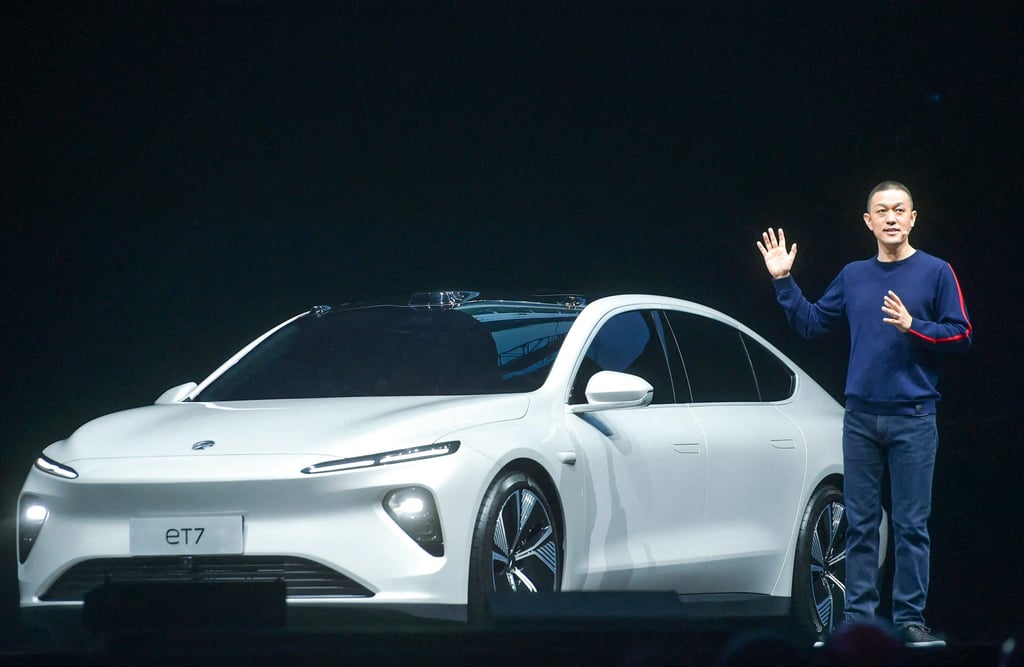Advertisement
Nio boss William Li pledges to up production after Chinese EV start-up faced yet more supply-chain disruption
- Li has sent dozens of employees to some of its vendors to help minimise future supply-chain constraints
- Investors and customers have been rattled by five major disruptions to production this year caused by China’s coronavirus measures
Reading Time:2 minutes
Why you can trust SCMP

Daniel Renin Shanghai
Chinese smart electric vehicle (EV) start-up Nio has sent dozens of employees to some of its vendors to help minimise future supply-chain constraints after production was recently disrupted for the fifth time this year.
In October, Nio’s factory – the JAC-Nio Advanced Manufacturing Centre in Hefei, the capital of east China’s Anhui province – ran short of vital components for the ET5 sedan as the country’s zero-Covid policy forced some suppliers to down tools.
Although now resolved, that and four previous disruptions to production this year were enough to rattle investors and customers. Nio’s shares have plummeted since their debut in March, while deliveries of cars slumped recently.
Advertisement
William Li, co-founder and CEO of the Shanghai-based carmaker, attempted to soothe investors’ and customers’ concerns about its manufacturing capability by pledging to increase output during a speech on Sunday.
“We have deployed dozens of employees to our partners so as to help them increase production of components,” he told customers at the opening ceremony for a new showroom in Dongguan in southern China’s Guangdong province, according to a company statement.

He said the company hoped to allay concerns about slow progress in expanding Nio’s capacity.
Advertisement
Select Voice
Select Speed
1.00x